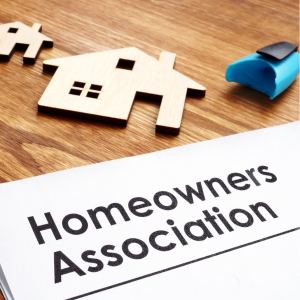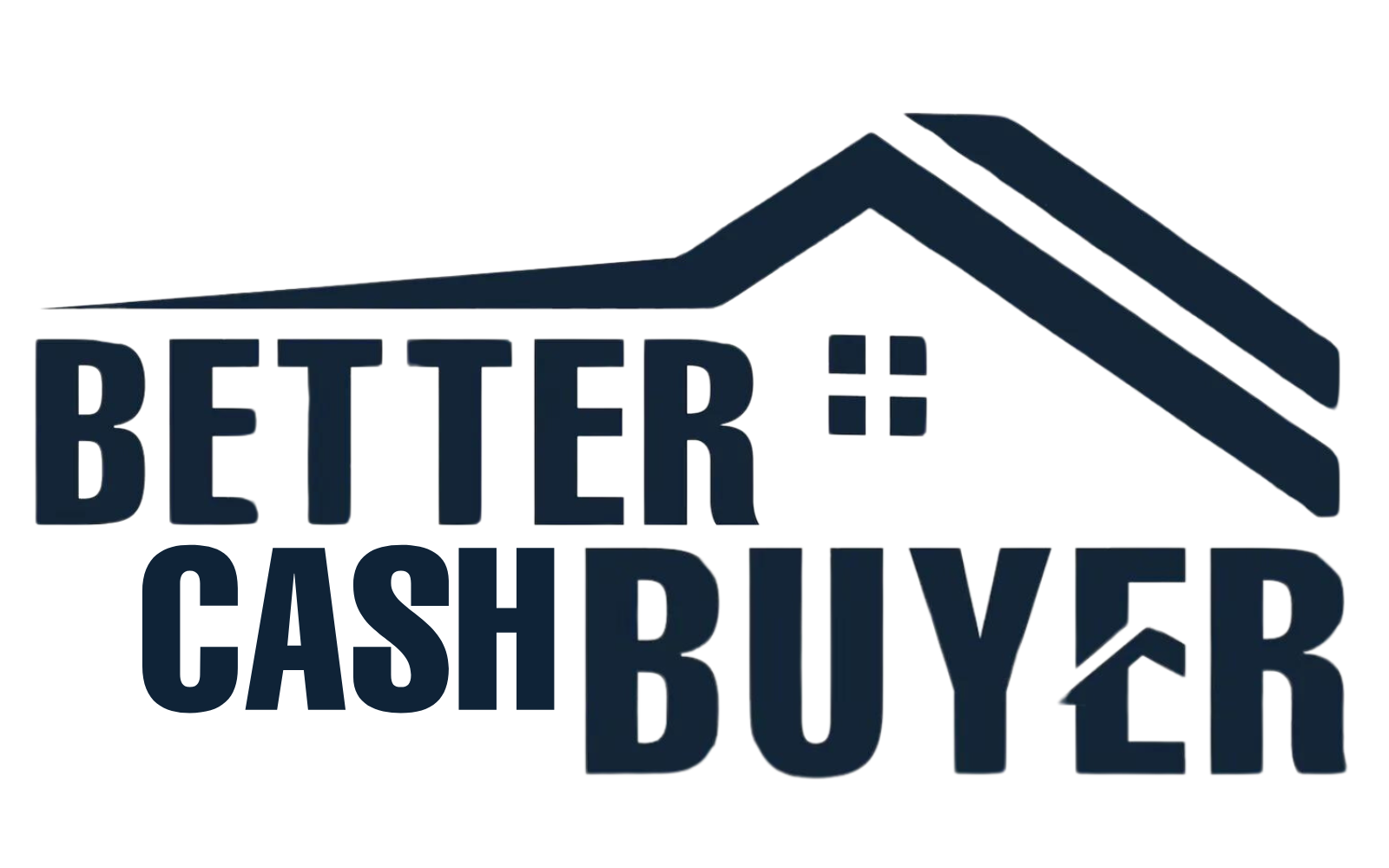
Exiting a Homeowners Association (HOA) in New Jersey can be complicated, but Better Cash Buyer is here to guide you. We help you understand your rights, obligations, and the HOA’s rules so you can make informed decisions.
Understanding the Basics of Homeowners Associations (HOAs) in New Jersey
In New Jersey, Homeowners Associations (HOAs) are essential for fostering community living, offering a framework and collective management for neighborhoods. Grasping the fundamentals of HOAs is crucial for homeowners aiming to effectively manage their rights and obligations.
In New Jersey, homeowners’ associations are generally created by developers to oversee shared spaces, uphold community regulations, and preserve property values. Every homeowner in an HOA community must follow the association’s covenants, conditions, and restrictions (CC&Rs), which detail the rules regarding property upkeep, architectural guidelines, and acceptable noise levels.
Being part of an HOA typically requires members to pay ongoing dues or fees. These contributions support shared amenities like landscaping, security services, and recreational facilities. Joining an HOA brings advantages such as improved neighborhood appearance and effective conflict resolution, yet it can also present difficulties when disagreements occur regarding rule enforcement or increases in fees.
Understanding the state laws that regulate HOAs in New Jersey can enable homeowners to tackle issues related to transparency, governance practices, or even the option to leave the association if they choose.
Pros and Cons of Joining a Homeowners Association
People who want to buy a property in New Jersey should think carefully about the pros and cons of joining a homeowners organization (HOA). An HOA can help keep property values high by enforcing regulations and standards that keep the neighborhood clean and well-kept.
They generally handle the upkeep of common areas, landscaping, and amenities like swimming pools or fitness centers, which makes living better. HOAs can also help people feel like they are part of a community by planning social events and activities.
But homeowners have to pay monthly or yearly dues to cover these services; thus, there is a cost to these perks. Also, if you live in an HOA, you have to follow certain rules about how your property looks and how you can change it, which some people may find limiting.
There may also be disagreements with the HOA board about how to enforce the rules or raise fees, which could lead to confrontations. Homeowners need to think about these pros and cons carefully before deciding if joining a HOA is right for them based on their lifestyle and finances.
The Role of HOA Fees and Assessments in Community Management

Homeowners’ Association (HOA) fees and assessments are essential for the management and upkeep of community resources, guaranteeing that shared spaces like pools, parks, and clubhouses are maintained and accessible. These fees are generally assessed on a monthly or annual basis from homeowners in the neighborhood.
The revenues collected from HOA fees are designated for different operational expenses, including landscaping, security services, and general maintenance, which contribute to preserving property values within the area. Assessments may be imposed for unforeseen repairs or enhancements to community facilities, necessitating homeowners to provide supplementary funds in addition to standard dues.
While some homeowners may perceive these fees as onerous, they are vital for maintaining a unified community atmosphere. When contemplating withdrawal from a homeowners association in New Jersey, it is essential to comprehend how these financial contributions influence the overall administration and quality of life within the neighborhood.
By thoroughly assessing HOA fee structures and assessment processes, homeowners can more effectively manage their responsibilities while devising an exit strategy that corresponds with their financial objectives and lifestyle choices.
Common Disputes Between Homeowners and HOAs
Homeowners frequently encounter conflicts with Homeowners Associations (HOAs) regarding various matters, which can complicate the process of leaving a HOA in New Jersey. A frequent source of disagreement centers around the implementation of community guidelines and policies.
Homeowners’ associations frequently enforce stringent rules regarding property aesthetics, landscaping, and architectural modifications, which can sometimes conflict with an individual’s personal tastes or budgetary constraints. Disputes over fees often arise, as homeowners may have differing opinions on the amount or allocation of association dues. This can create friction regarding payment responsibilities and the possibility of liens on their properties.
Moreover, tensions may emerge concerning the clarity and equity of board decisions, as homeowners might sense they are left out of crucial conversations or inaccurately portrayed by HOA leadership. Noise complaints and pet restrictions create additional tension between homeowners and associations, as residents strive to find a balance between community standards and individual liberties.
The ongoing disputes reveal the intricate dynamics between personal property rights and community governance in HOAs, emphasizing the difficulties encountered by individuals contemplating leaving a HOA for increased independence.
Legal Requirements for Exiting an HOA in New Jersey

Exiting a Homeowners Association (HOA) in New Jersey entails complying with particular legal criteria that homeowners must carefully consider. To begin, evaluate the HOA’s governing documents, including the declaration, bylaws, and applicable covenants and restrictions.
These agreements frequently detail the withdrawal procedures and any obligations that must be met before withdrawing. Understanding the New Jersey Planned Real Estate Development Full Disclosure Act can help homeowners understand their rights and duties in this process.
Typically, you must communicate with the HOA board to formally advise them of your plan to exit. This communication should be in writing to ensure legal compliance.
Furthermore, clearing any unpaid dues or assessments is critical since financial responsibilities must be satisfied before disassociation from the HOA. Consulting with a real estate attorney who is familiar with New Jersey’s HOA legislation may also be advantageous to ensure that all legal issues are handled appropriately and promptly during this transition period.
Exiting an HOA typically requires selling your home. One option is to sell your home for cash in New Jersey, which can quickly relieve HOA obligations.
Evaluating the Long-Term Benefits of Leaving an HOA
For homeowners in New Jersey who want more freedom, leaving a homeowners association (HOA) can have a number of long-term benefits. When homeowners leave a HOA, they often have more say over how their property looks and how it’s used. This means they can make changes to the landscape and the outside of their homes without getting permission from the organization.
Leaving an HOA might save residents a lot of money since they no longer have to pay monthly or yearly dues, special levies, or fees for community services they don’t utilize. You can use this money to make renovations to your own home or invest it.
Homeowners also have more freedom over their property decisions and lifestyle choices when there are no HOA rules and restrictions. This improves their quality of life. Leaving a HOA also stops possible fights with board members or neighbors over rule enforcement or breaking the rules.
When homeowners leave a HOA, they can make choices that fit their personal needs and wants, which gives them a sense of ownership and pride in their home.
Leaving an HOA can save money and give you more control over your property. At Better Cash Buyer, we buy houses in Hackensack and other cities, making it easy to sell quickly and escape HOA restrictions while enjoying greater freedom in your home.
Exploring Non-HOA Housing Options in New Jersey

Homeowners in New Jersey can enjoy more freedom and flexibility by looking into housing choices that aren’t in a homeowners’ association. Homes that aren’t governed by a homeowners association (HOA) don’t have restrictive covenants or mandatory fees, so residents can make their living areas exactly how they want them.
Buyers can find a wide range of single-family houses in counties such as Bergen, Essex, and Monmouth. These countries offer more freedom. These homes usually have bigger lots and fewer rules about making changes to the outside. This means that homeowners can make changes like gardening or adding features without having to get permission from an HOA board.
Non-HOA neighborhoods in New Jersey also tend to have fewer rules about parking, having pets, and using the land, which makes them appealing to people who like their privacy and independence. As property taxes and the cost of living continue to rise in some parts of the state, buying a house that is not in a homeowners association (HOA) can also save you money because you won’t have to pay monthly or yearly association dues.
Homebuyers in New Jersey can easily find a non-HOA property that fits their lifestyle and gives them the freedom they want. The state has a wide range of neighborhoods, from urban areas to rural retreats.
Is There Any Way to Leave a HOA?
Getting out of a homeowners association (HOA) in New Jersey might be hard, but knowing your alternatives is the first step to getting out of HOA duties. It is usually not possible to leave an HOA directly because of the binding nature of covenants and deed limitations. However, homeowners do have a number of options to consider.
Selling your home is one possibility. When the new owner buys it, they take over all of the association’s responsibilities, which means you are no longer responsible for HOA duties. Another way is to talk to the HOA board about getting special exceptions or changes to certain rules that might be too hard to follow.
If you think the HOA has broken its own rules or state laws that govern homeowner associations, you may need to take legal action. If you talk to a real estate lawyer who knows a lot about New Jersey HOA legislation, they may provide you with useful information and help you think of ways to leave an organization legally.
Also, getting other people in your community to support changes could lead to modifications in the bylaws that make it easier for people who want to leave the HOA structure. Homeowners in New Jersey who want to get out of their present HOA arrangements will be able to do so by knowing these methods.
You cannot easily leave an HOA because membership is tied to your deed. However, you can sell your home, petition to dissolve the HOA, or take legal action. For guidance, Contact Us at Better Cash Buyer.
How to Dissolve an HOA in NJ?
Dissolving a Homeowners Association (HOA) in New Jersey is a multifaceted endeavor, but with an effective plan, homeowners can achieve success in this undertaking. The initial step in dissolving a homeowners association (HOA) is to meticulously examine the governing documents, including the bylaws and covenants, conditions, and restrictions (CC&Rs), which often delineate the dissolution procedures.
It’s essential to ensure that there is substantial support from the community; typically, a significant percentage of homeowner votes, often two-thirds or more, is required to proceed. Engaging a proficient attorney specializing in New Jersey real estate law is essential for comprehending legal requirements and assuring adherence to state statutes.
Homeowners might contemplate convening meetings to deliberate the advantages and ramifications of dissolving the HOA, addressing issues such as property maintenance obligations and financial consequences for communal amenities. Submitting the requisite documentation to local governmental authorities and resolving any existing debts or liabilities of the HOA are essential steps toward dissolution.
Effective communication and meticulous planning facilitate consensus among homeowners, enabling a smooth exit from an HOA in New Jersey and enhancing autonomy over property management decisions.
Can You Secede From a HOA?
Leaving a Homeowners Association (HOA) in New Jersey can be a difficult process for homeowners looking for freedom and self-governance. Although the idea of breaking away from a HOA may seem attractive to individuals frustrated with strict rules and fees, the reality is that it usually involves a complex process.
In New Jersey, homeowners face the challenge of understanding intricate legal structures and examining their community’s governing documents, including the Covenants, Conditions, and Restrictions (CC&Rs), to assess the possibility of leaving an HOA. Many associations possess detailed bylaws that define the processes for modifying or completely dissolving the HOA.
Connecting with legal experts in real estate law can offer essential insights into the feasibility of secession and the necessary actions to attain homeowner independence. Grasping state regulations, building agreement among fellow homeowners, and participating in conversations with HOA boards are essential elements for individuals contemplating this journey towards enhanced personal property rights and liberties within their neighborhood.
Want to sell your home quickly? There are no repairs, delays, or headaches. At Better Cash Buyer, we buy houses as-is and pay fair cash offers. Call (347) 386-2549 now to get started with a no-obligation consultation.
Helpful New Jersey Blog Articles
- How to Avoid Closing Costs in New Jersey
- How To Remove Your Name From A New Jersey Mortgage
- Optimal Seasons For Selling Your Home In New Jersey
- Selling Your Investment Property In New Jersey
- Buying A New Jersey Home Before Selling Your Current One
- Refinancing Your Home After Divorce In New Jersey
- Exiting An HOA In New Jersey
- Fixing Up A House To Sell In New Jersey
- Selling Home with Reverse Mortgage in New Jersey
- Selling a House to a Family Member in New Jersey
- How to Sell a House With Code Violation in New Jersey
- Can I Sell My House Below Market Value in New Jersey?
- How Do I Short-Sell My House in New Jersey

| HOMEOWNER’S ASSOCIATION | PRINCIPAL | REPAYMENT | ASSET | LENDERS | CREDITORS |
| LEGAL SERVICES | FORECLOSURE | FORECLOSURE DEFENSE STRATEGIES | FORECLOSURE DEFENSE | MORTGAGE DEBT | MORTGAGE |
| MORTGAGE PROVIDERS | MORTGAGE LENDER | SUING | SUED | LAWSUITS | LOAN |
| INCOME | OVERSIGHT | INFORMATION | CONDOMINIUM ASSOCIATIONS | CONDOMINIUM | INSURANCE AGENCIES |
| INSURANCE COMPANY | INSURANCE AGENCY | CREDIT | ANTI-DISCRIMINATION | DISCRIMINATION | MONEY |
| CREDIT | CREDIT CARD | LEGAL ENTITY | FAIR HOUSING | FAIR HOUSING ACT | HOUSING DISCRIMINATION |
| VOTING RIGHTS | THE RIGHT TO VOTE | POLICY | ORGANIZATIONS | NON-PROFIT ORGANIZATIONS | NON-PROFIT |
| NON-PROFIT CORPORATIONS | NONPROFIT CORPORATION | FINANCES | DEBT COLLECTION | BANK | BANKING |
| LIENHOLDER | CREDIT SCORE | CORPORATION | THE UNITED STATES | AMERICA | REAL ESTATE AGENT |
| OPT OUT | MARKETING | INJURY | INCORPORATION | ENTITY | INBOX |
| DISABILITY | COOPERATIVE OWNERSHIP | BINDING AGREEMENTS | CONTRACT | BUDGET | |
| ARTICLES OF INCORPORATION | WEALTH | TRUTH | TOWNHOME | SNOW REMOVAL | SNOW |
| PRICE | NEGLIGENCE | NEGLIGENT | LIABILITIES | LEGISLATION | LIABILITY |
| LEGAL LIABILITY | NEW JERSEY LAW AGAINST DISCRIMINATION | LAW AGAINST DISCRIMINATION (LAD) | FAIR DEBT COLLECTION PRACTICES ACT | EDUCATION | DAMAGES |
| AMERICANS WITH DISABILITIES ACT | AMERICANS WITH DISABILITIES ACT (ADA) | COVENANTS CONDITIONS AND | THE HOA IS | THE HOA TO | THE COVENANTS CONDITIONS AND |
| COVENANTS CONDITIONS AND RESTRICTIONS | A HOMEOWNERS ASSOCIATION HOA |
